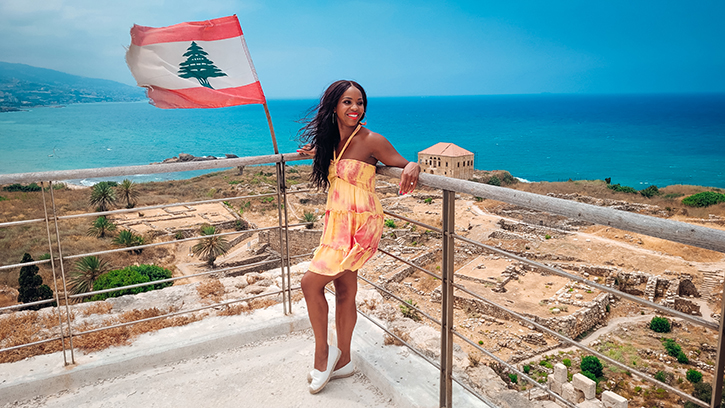When 30-something-year-old New York native Malikah Kelly told her friends and family she was moving to Lebanon, they were terrified. A Middle Eastern country bordering Syria and Israel, the region in which it is located is known for conflict and instability.
Malikah certainly understood the concern of her friends and family. However, her husband was offered a job opportunity in Beirut, and together the couple weighed the pros and cons to decide what would be best for them.
“My relationship with my husband is a loving one, and we tackle most decisions with a business-like approach. As partners we identified our short- and long-term financial goals, and examined what would create financial growth and happiness. We had been long-distance before and he was happy to change his career path to keep me in my profession as a marketing executive in the fashion industry, or have a long-distance marriage for a year or two so I could hit some additional career milestones.”
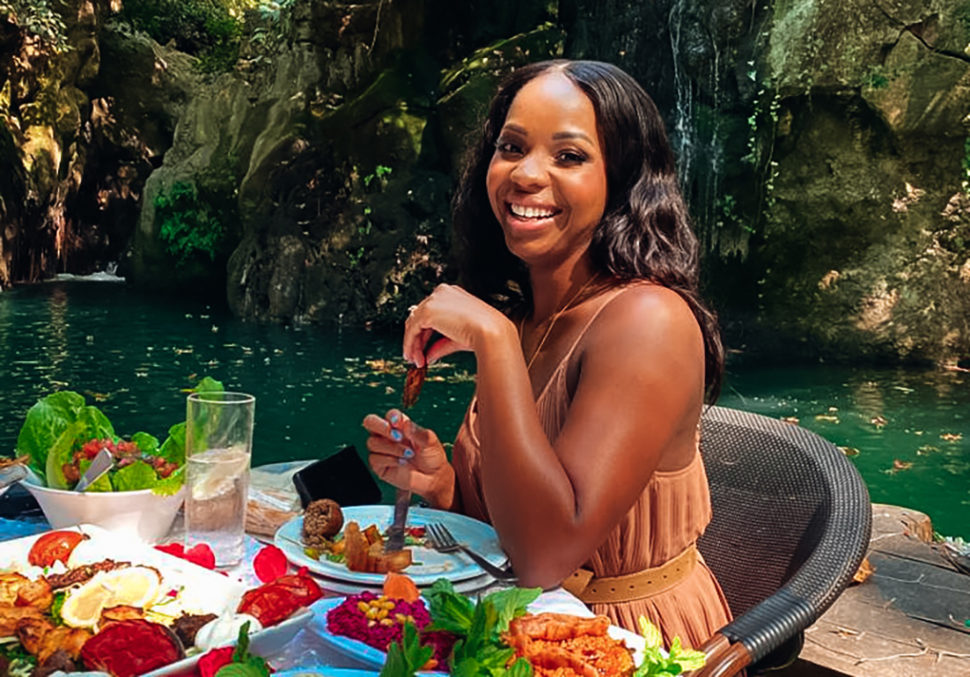
Ultimately, Malikah and her husband decided that taking advantage of the opportunity would the best choice; one that would move them in the direction of their goals and allow them to be together. Malikah decided she would take some time off from her career to settle into her expat life while figuring out a new direction, a decision she says came along with judgement from others.
She’d been known as the ambitious and career-focused woman who moved to Italy alone in her 20s to earn an MBA, worked for an international fashion brand, and built an amazing career for herself. So, many people were shocked to hear she would now be moving to a foreign country to support her spouse’s career.
“Moving to Lebanon meant leaving the career path I had nurtured for so long, and even though I knew it was for the best, it was a difficult decision to make. I got a lot of questions and comments like, ‘What about your job?’ and ‘Are you just going to be following your husband around for his job?’ I never let that bother me because I know how strong our marriage is and it’s a beautiful thing to be able to have an adventurous life with someone who loves you.”
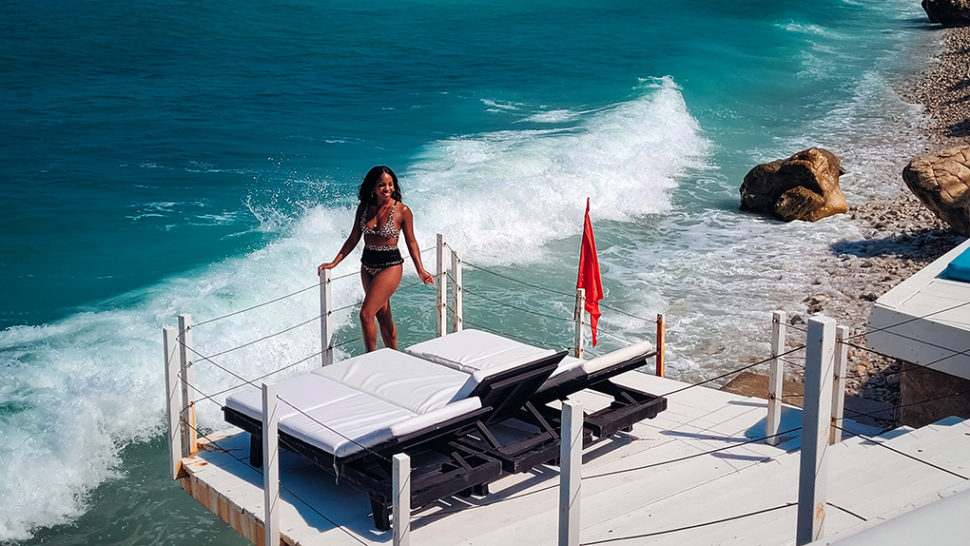
The couple’s decision to move was made prior to the devastating port explosion that rocked Beirut on August 4, 2020, leaving over 200 people dead, more than 6,000 injured, and many more homeless. The blast caused irreparable damage to the country and its economy, including fuel shortages and civil unrest, and left Lebanon struggling in the midst of a global pandemic.
Malikah and her husband questioned whether or not to continue with the move. Ultimately, they decided to take a leap of faith and so far, the couple is overjoyed with their decision.
A small, dynamic country, the influence of the Ottoman Empire and the French are apparent in Lebanon. Malikah has found the Lebanese people to be genuinely warm and hospitable and has been enjoying the stunning castles, beaches, hiking, wineries, restaurants, and nightlife of her new home.
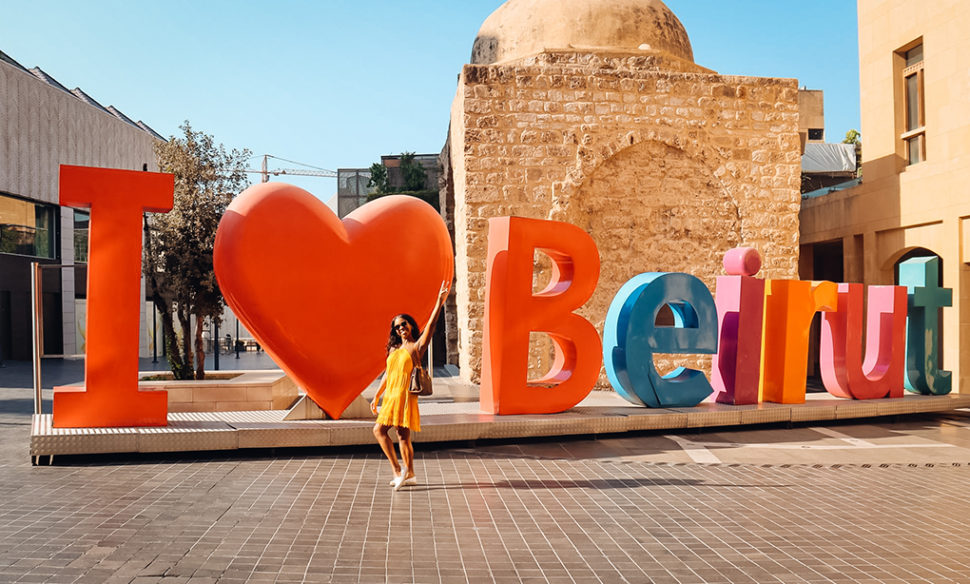
“The beaches are really amazing; the sunsets on the Mediterranean create a lovely rose gold horizon. The beach scene is great, with private clubs that all have a different vibe. And I even love nightlife again. I stopped clubbing in the US years ago and I thought I just didn’t like it anymore, but being here I realized that the problem was never clubbing. The problem was the overpriced, competitive scene, constant harassment, and rampant misogynoir.”
Despite having only been in the country for a few weeks, Malikah has already had so many unique experiences. She and her husband have enjoyed lunch at a beautiful restaurant in the mountains called Shallalat al Zarka. They’ve had a massive lunch on a private floating boat under a waterfall with a spread of traditional Lebanese dishes, and plenty of wine and dessert for $50 each. They have gone to an incredible day party at Rocca Marina, a seaside resort and club with jet skis, cliff jumping, a giant water slide, and three different pools.
“We’ve been to beach clubs overlooking the Mediterranean and there are certain times of the year where you can ski in the mountains in the morning and be on the beach swimming by the afternoon. I’m definitely looking forward to doing that when the seasons change!”

But despite the country’s beauty, hospitality, and abundance of activities, there have been some differences that have not been quite as easy to adjust to. The Lebanese government resigned in the wake of the port explosion last year, and the country has had severe infrastructure issues since then. There are shortages of everything from fuel to medications, constant blackouts, and issues with plumbing and water quality.
“We are living through a historic moment in Lebanon with multiple crises all coming to a head. We are probably as fortunate as we possibly could be in this environment, but there are little things we have to be mindful of that I am really not used to. The plumbing is so fragile we can’t flush toilet paper; we have to throw it in the trash and take the bathroom trash out daily. And we use bottled water for everything–cooking, brushing our teeth, even rinsing drinking glasses.”
With the frequent power outages, Malikah tends to avoid taking elevators in most buildings in case they don’t have a private generator. Also, though the extreme freshness and lack of preservatives in the food is a positive, it means the food goes bad a lot faster than in the US.
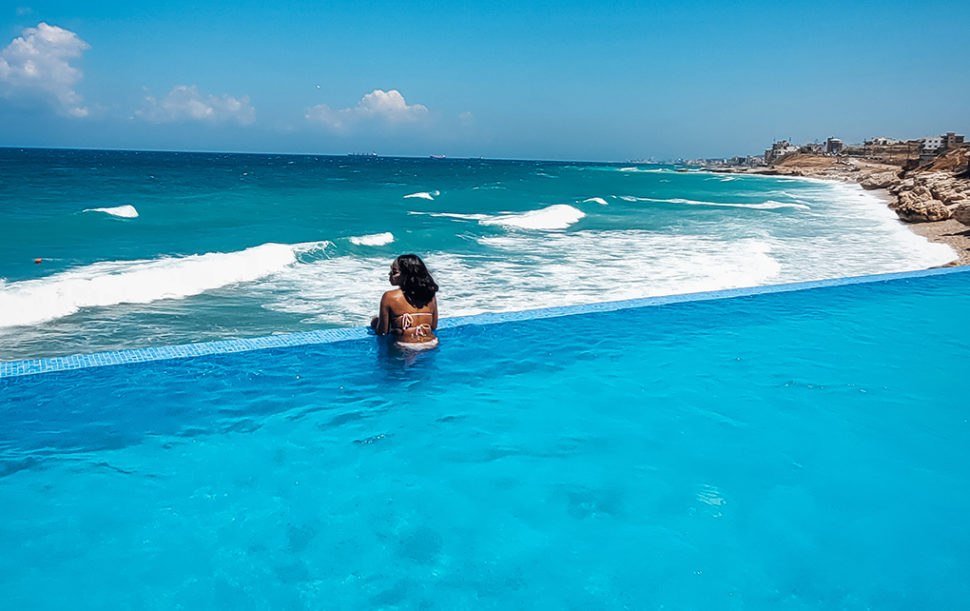
“I’m just not used to and it makes grocery shopping even more challenging. In the US I could take chicken out to defrost so I could cook it after work. I’ve tried doing that here and it went rancid. From frozen solid to turning green in just a few hours. Which makes me think about what we do to food in America that makes it last so long.”
But the biggest culture shock for Malikah has been not having some of the most basic necessities she is used to. In Beirut, some people go without the things we consider basic necessities. Even feminine hygiene products are becoming a luxury, which leads Malikah to think about period poverty a lot.
“By no means am I comparing my challenges to those of the Lebanese. But the economic culture shock has been the most difficult adjustment for me. We take so many things for granted: access to clean water, electricity, sewage, internet, transportation, over the counter medication, and banking institutions. Lebanon is currently experiencing one of the most devastating financial crises in the region. The Lebanese Lira has lost 90% of its value, and many local businesses no longer take credit cards because of the collapse of the banking system. The price for goods and services are in a constant state of fluctuation, and that makes it really hard to maintain a budget.”
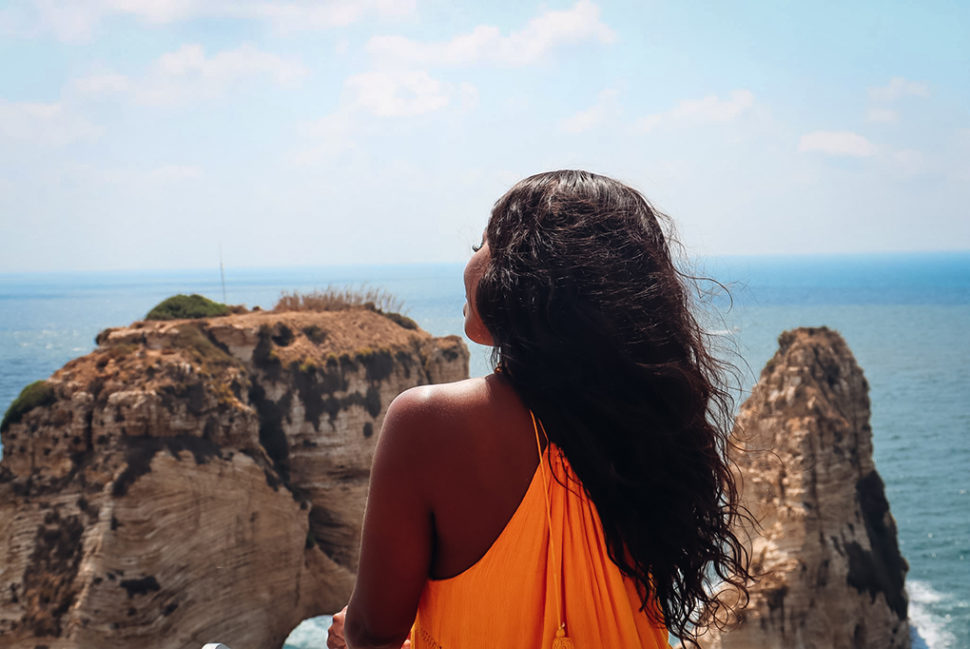
Malikah’s father remains very concerned and sends her news articles about the economic crisis in Lebanon every day. He reminds her to make sure she stays stocked up on food and supplies, which she does.
“I try to keep it positive and send him photos of how beautiful the country is and tell him about how we spend our days and weekends. To be honest the 24-hour news feed doesn’t help how he and many others feel about this region of the world, but there are definitely a lot of positive things that never make the news so I hope I can shed light on at least some of that.”
Malikah is looking forward to her wedding in France next month. Due to the pandemic, it was postponed twice and she and her husband had a private elopement last April.
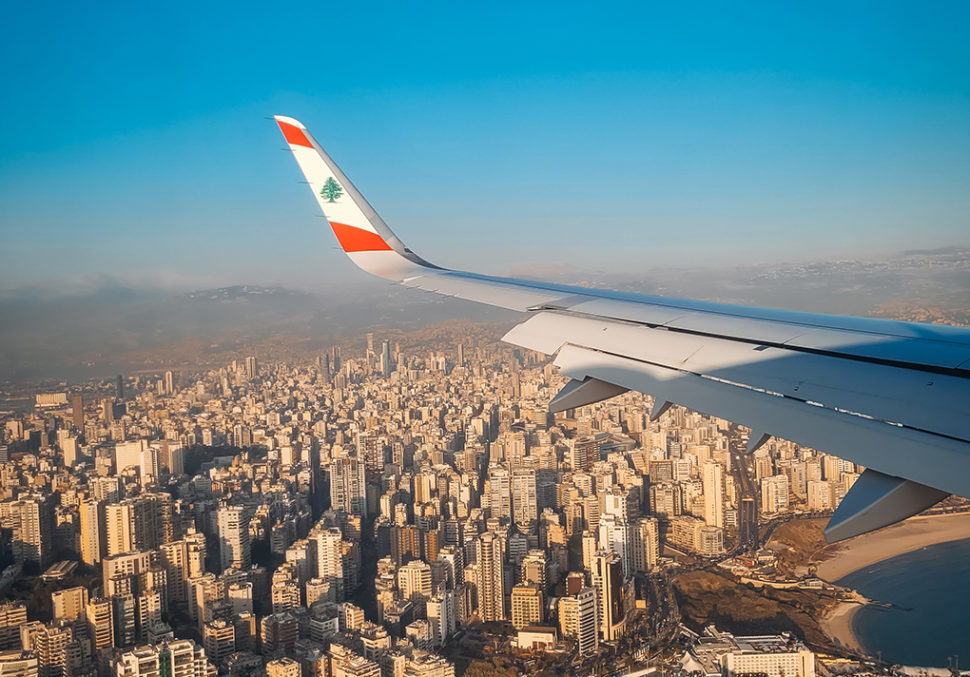
“It will be really nice to finally get to celebrate with friends and family, and have something of a reunion since our move to Beirut.”
You can follow Malikah at @whereismalikah and subscribe to her new YouTube channel.
Related: The Black Expat: Moving To Kuwait Allowed Me To Live Life On My Own Terms
